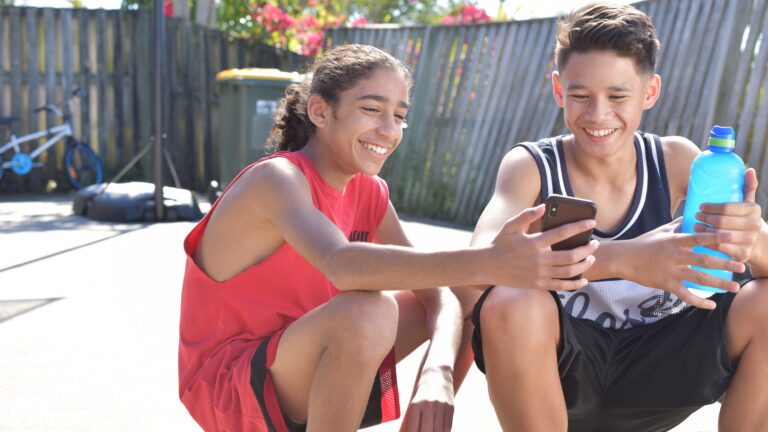During the teenage years, changes in the brain are quite dramatic. These changes can affect the way teens manage their emotions and how they behave. In this video, neuroscience educator Nathan Wallis explains what’s going on in your teen’s brain so you can help them deal with school and the many other things they’ve got going on.
Learn how your teen’s spark can help them and find out how routines can help teenagers.
- Transcript
-
[Music]
Narrator: Our brains are changing every single day and during our teenage years these changes are even more dramatic. This can influence a teen’s behaviour, the way they deal with emotions, decisions and even you.
Nathan: The key to really understanding the teenage brain is to understand it’s still under construction. So it might be helpful to understand the structure of your brain. That you really have three brains inside your head. The brain at the bottom, often called the reptilian brain, is your survival brain. Keeps your heart beating. Keeps you breathing. It’s the home of fight, flight or freeze, but just understand it’s the survival brain. On top of that, we have the emotional brain. Often called the mammal brain because you have to be a mammal to have this emotional brain. And then the last brain, this one that’s going to control your emotions, understand consequences; that part of the brain is not really going to be constructed or online until well into your twenties. So the key to understanding the teenage brain is to understand we’re really dealing with this emotional brain. It is normal for teenagers to see the world in a way that’s much more based on feeling than is based on thinking. The key really to communicating with the teenager is to make sure you speak to that emotional brain before you give your thinking strategy.
Narrator: Despite the teen stereotype, when it comes to the teenage years, this point in our life is actually quite amazing. It’s a golden time for learning and growth.
Nathan: The habits that your teenager forms during adolescence will be the habits that they have for the rest of their life. So as parents we can set up good habits and good foundations for their adult life by making sure there’s routine and balance. Now a teenager might not follow that routine and balance of their own accord, so they’re going to need your help. But self-control means that you can’t just stand over them and get them to do it. We need them to engage their own problem-solving mind.
Narrator: Sometimes letting them know that they’ve handled life well, or have done a good job, does wonders for your teen’s confidence and their willingness to cooperate with you. The main thing to remember is don’t give up, no matter what. If they know you love them and will be there for them that’s what they’ll come back to.
You can discover more on the Spark Their Future website.
Last Updated: 08 December 2022





